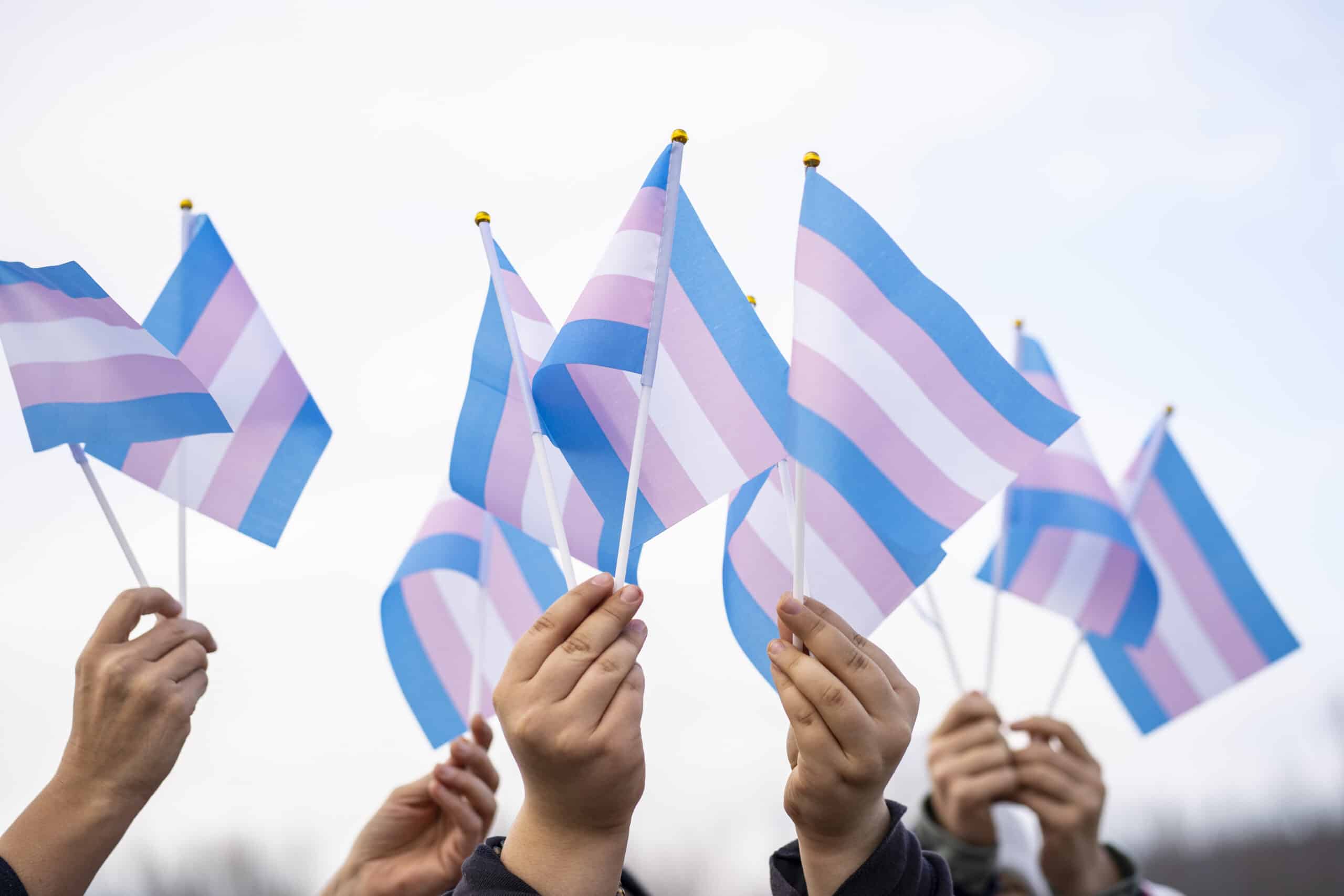November is Trans Awareness Month!

November is Trans Awareness Month, and it’s dedicated to education about the trans community and opportunities to explore the challenges they face. Also known as Transgender and Nonbinary Empowerment Month, this is about more than just a little extra learning; the last few months of fall are a chance to let the trans and nonbinary people in our lives know they are valued, and create communities where equity and inclusion are available for all.
Sadly, this month is not just about building people up. Trans people are a highly marginalized group, and organizations, advocacy groups, and individuals who support trans and nonbinary rights are striving to raise awareness concerning discrimination and violence that exists today. With an increased understanding of the trans community and its challenges, you can do your part to support the trans people in your life and create better outcomes for the future.
Understanding the Trans Experience
Transgender people exist in all walks of life whether they are in the open or not. They go to school, they have jobs, and have friends and family they love and who love them. If you feel like you’ve never come across a trans person before, the truth is you probably have and just didn’t know it!
The challenge for understanding the trans experience if you aren’t living it yourself is that it concerns two very fundamental aspects of the human experience that most of us have never had to think about: our sex and our gender. As a result, basic information about trans people can sometimes be confusing. Language and information about gender identity, gender expression, nonbinary issues, and sex is becoming much more prevalent in society, but there are still enormous gaps in understanding to be addressed.
Simply put, being trans means that there is a difference between your biological sex and your personal gender.
Sex is a scientific term that refers to your chromosomes and the impact they have on your reproductive organs, hormones, and various other biological expressions of your body. Everyone is assigned a sex at birth, it can be established as objective fact through lab work, and your sex assigned at birth is the first milestone in being referred to as male or female.
Gender is different from sex, and refers to someone’s internal self-identification as male, female, or neither, which is referred to as nonbinary. By analogy, sex is the hardware your system is made of, then gender is the software that runs on it. In most cases, a person’s hardware and software are the same, meaning that their sex and their gender are both male/male or female/female.
However, when someone’s sex and gender are different, they experience gender dysphoria—a scientific term that indicates someone is a transexual, or trans for short. While many people who are trans may choose to transition through medical procedures and therapy to make their physical characteristics reflect their gender identity, this is actually not what makes someone trans. A person can be trans without ever changing their outward appearance.
Of course, many trans people decide to alter their lifestyle to match their gender identity rather than their sex. This can include changing their name and personal documents, starting hormone therapy, or undergoing medical procedures.
Challenges Facing the Trans Community
Like members of other marginalized communities, trans people regularly face discrimination, inequality, and disparity in things like health, economics, and safety that can manifest in a variety of ways. Appreciating the challenges and the concurrent barriers to progress is critical to forward movement in support of the trans community.
Discrimination
Trans people experience chronic discrimination and infringement of their basic human rights. It occurs in some form or another in nearly any aspect of their lives, and can take place without warning.
People who are trans routinely experience discrimination in public and private settings for both access and service. Overt discrimination extends to sectors like education, employment, and housing, and may include verbal and physical harassment and abuse. Tragically, the fear of discrimination and personal harm can make trans people averse to seeking basic human services and avoid socioeconomic opportunities, compounding existing iniquities.
Health Disparity
Members of the trans community report low rates of health insurance and increased instances of negative health outcomes. Evidence suggests this is because some members of the trans community don't feel safe seeking medical care, and those who do often face discrimination or lack of knowledge by medical providers on appropriate management strategies.
Health insurance companies have also created barriers to healthcare for trans people. Through transgender exclusions, trans people are often not able to afford the care they need simply based on what an insurance company considers a non-conforming gender identity.
Violence
A staggering 1 in 4 trans people report being physically assaulted at least once because of their gender expression. Transphobic hate crime rates are reaching all-time highs in the United States, with subpopulations of the trans community like transgender youth and transgender people of color being most often victimized.
Intimate partner violence is also a serious problem in the trans community. Through a combination of studies on the subject, it was found that the mean lifetime prevalence of intimate partner violence was just under 38%, which is 2.2 times more likely than in non-transgender couples.
How Can You Show Your Support
Fortunately, November is the time for everyone to stand up and start making a positive difference for the future! Showing your support for the trans community during Trans Awareness Month is easy, and there are numerous ways to get involved in events, meetings, and lectures.
Also, consider participating in the Transgender Day of Remembrance on November 20th. On this day, supporters seek to honor the memory of Rita Hester, a transgender woman killed in 1998, and commemorate all transgender people lost to violence since Rita Hester’s death. You can also donate to a variety of trans support organizations, and the high point of the month is Transgender Awareness Week—November 13-19—where communities around the country seek to increase understanding of transgender issues.
And most importantly, take some time to connect with the people around you who are in touch with the trans experience. Many people have friends, loved ones, and acquaintances with relatives who are trans, or are trans themselves. This month, let them know you’re listening, caring, and standing beside them hand-in-hand.
Help Spread the News About Trans Awareness Month!
Trans Awareness Month is an opportunity to focus on the challenges and needs faced by the transgender community. With an increased understanding of transgender issues, there is an opportunity for greater awareness of how to support our trans community members that can transcend all months of the year.
Increased awareness and understanding begin with education, and Premiere is at the forefront of continuing education content and resources that can make a real difference for frontline workers and the trans community at large. Courses like Embracing Identities: Suicide Prevention with Trans Youth and Anti-discriminatory Practice as Cultural Competence with LGBTQIA+ Patient Populations created by Brian Masciadrelli, PhD, LICSW (MA), LMSW (NY), describe the challenges faced by the trans community and what we can do to recognize and mitigate them.
All of Premiere’s content is developed by leading industry experts, and makes staying informed, current, and compliant as easy as turning on your screen.


.png)



